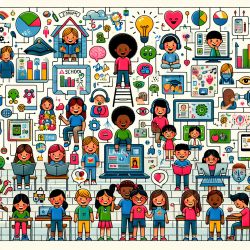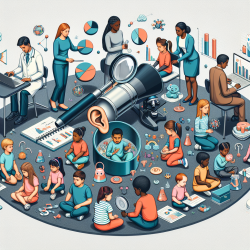Introduction
In the wake of the COVID-19 pandemic, the educational landscape underwent significant transformations, with schools adopting various learning models, including in-person, distance, and hybrid learning. These changes have prompted researchers to explore the impact of these models on children's psychological and social health. A recent study titled "Association between school learning models and psychological and social health visits to the emergency room" provides valuable insights into this topic.
Research Findings
The study conducted by Knier et al. (2024) analyzed emergency department (ED) visits for psychosocial complaints among school-aged children during different academic years, particularly focusing on the pandemic period. The findings revealed a notable decrease in psychosocial visits during distance learning compared to in-person learning, especially among middle school students. While the difference was not statistically significant for high school students, it was pragmatically relevant.
Implications for Practitioners
These findings offer valuable insights for practitioners working in speech language pathology and related fields. Here are some key takeaways:
- Understanding the Impact of Learning Models: Practitioners should consider the potential impact of different learning models on children's psychosocial health. Distance learning may reduce certain stressors associated with in-person schooling, such as bullying and social pressures.
- Monitoring Psychosocial Health: It's crucial for practitioners to monitor children's psychosocial health during transitions between learning models. Increased awareness and proactive interventions can help mitigate potential negative effects.
- Collaboration with Schools: Collaborating with schools to identify at-risk students and provide necessary support can be beneficial. Schools play a vital role in identifying and addressing psychosocial issues among students.
Encouraging Further Research
While the study provides valuable insights, it also highlights the need for further research to better understand the causative relationships between learning models and psychosocial health. Practitioners are encouraged to engage in or support research initiatives that explore these dynamics in diverse populations and settings.
Conclusion
As we continue to navigate the evolving educational landscape, data-driven insights like those from Knier et al. (2024) can guide practitioners in making informed decisions to support children's psychosocial well-being. By understanding the impact of learning models and collaborating with educational institutions, practitioners can contribute to creating positive outcomes for children.
To read the original research paper, please follow this link: Association between school learning models and psychological and social health visits to the emergency room.










